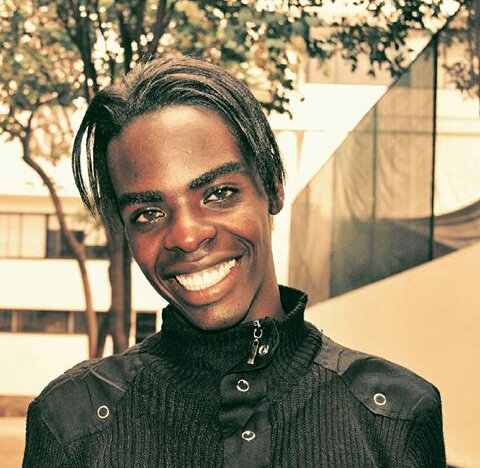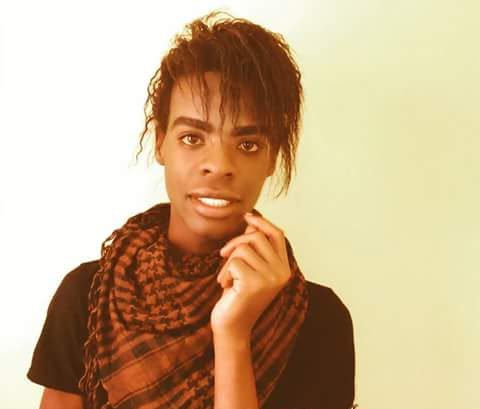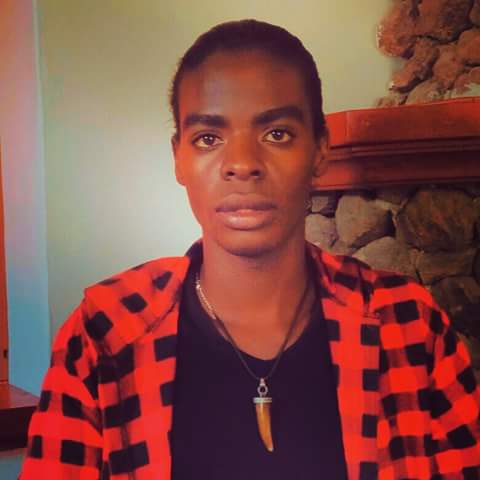Activist Profile | George Barasa: “When I was outed, my family tried to eject me from the home I had known for almost 20 years.”
By Ross Semple

George Barasa, 26, is a gay, HIV positive gospel musician and activist from Kenya. He is also the Kenya reporter for Ugandan LGBT+ news website Kuchu Times. In 2011, at 19 years old, Barasa was disowned by his family and forced to quit school after being outed by a local newspaper. He consequently moved to Nairobi and built a career under the artist name Joji Baro, turning his life story into a source of inspiration for the global LGBT+ and HIV communities.
In 2013, Barasa founded Out in Kenya, an LGBT+ social Enterprise. He subsequently participated in the founding committee of the Cosmopolitan Affirming Church in Nairobi, welcoming LGBT+ people of faith. In 2015, he was recognised by the World Council of Churches for his religious contribution. Last year he graduated from the Young African Leadership Initiative (YALI) and also runs an LGBT+ shelter for the homeless in Nairobi.
Attitude caught up with Barasa in a year which saw him nominated for the Kaleidoscope Trust’s David Kato Award.
How did your family react when they found out you were gay?
My family used to suspect that I might be gay. They had initially tried to change me by giving me tougher chores than my siblings. When I was outed in a local newspaper they confirmed their worst fears and to protect their ”family dignity” they disowned me. I remember one day during an argument about the article about me my brother cried and asked me where did they go wrong! Most young gay men are disowned when they are still in school and not equipped to survive on their own. It is very common here in Kenya. Luckily for me I was already doing music and modelling so it wasn’t that hard to adjust. I had a new start, went back to school. I self-educated myself through high school.
What inspired you to create Out in Kenya and how much opposition have you faced?
When I was outed, my family tried to eject me from the home I had known for almost 20 years. I tried to look for help from local gay organisations but none could handle my case. They simply sent me back. I tried to stay at home trying to prove neighbours wrong that even though I was gay I wasn’t a bad person. Eventually I was thrown out. Fearing that I would not get help if I go back to the same organisations I started my own. With just a few people onboard, we started Out in Kenya, an entrepreneurship LGBT+ organisation. Some of the opposition I faced came from within the LGBT+ community. Many people didn’t believe that a high school boy could run such an organisation. After two years of trying so hard to prove to myself I felt I had limited education on how to manage a CBO so I left the organisation back to concentrate on my music business.
Have you had much support locally and internationally for your work?
I have received little support to no support at all. There was a time I remember vividly a funding organisation rejecting my proposal simply because they have never supported me before. So I have more than often used my own resources to go about my activism. All my projects have been done on zero budget.

How have things changed in Kenya since you found Out in Kenya? Has it got better or worse to be an out LGBT+ person.
Things have gotten better. I have seen several LGBT+ organisations empowering our community by teaching them bead work. Most of my innovations including LGBT+ people on social media and picnic events have been picked up by other organisations. The security has gotten better.
What are some of the dangers you’ve faced as an activist?
As an independent LGBT+ activist I face several challenges. Death threats are most constant. Arbitrary arrests whenever I’m walking in the streets. Evictions. I have been evicted so many times than I can count and each time it happens I have to get back on my feet alone. I can’t proceed with my education because I cannot afford it. All my resources go back into my activism and this have been my greatest challenge. I also don’t have a security system put in place in the event of attack.
How are you challenging oppression through your art?
I sing about social injustices towards the LGBT+ community. Some of the themes I cover include hate attacks, coming out, HIV, human rights. I’ve also appeared in LGBT+ movie and music videos. I perform my music in LGBT+ and human rights events. With my position as an established artist, I also mentor other up and coming LGBT+ artists.

Not many activists can claim to have their own album. Tell me a bit about your music, where we can hear it and whether you have plans to make more?
I have an LGBT+ mini album “Rainbow” with features Grammo Suspect and another album “The Gospel Of Unity”. Gospel of Unity is a Christian Album. I’m a very spiritual and religious person. This has enabled me to overcome many challenges by being a believer. The Gospel album was my first. Right now I’m working with an LGBT+ singer in Uganda called Shivan Pavin Makombo famous for the hit “My Lover” for my next single coming up soon.
What is the biggest challenge you face in 2017?
My biggest challenge this year is to find a sponsor for my college education. I think it’s time I familiarize myself with what I’m doing. I plan to study Social Work so I can best manage the LGBT+ homeless shelter I’m running.
For more info on George Barasa’s community work, music, art and activism, visit: youtube.com/watch?v=8EataOQvPII
